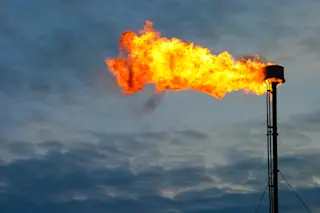So while American politicians and environmentalists slug it out over a proposed pipeline, China is stocking its rainy day shale and oil sands fund. Let's start with the recent news out of Canada:
China will take over full ownership over a Canadian oil sands project for the first time after Athabasca Oil Sands Corp announced Tuesday it sold the remaining 40 percent of the MacKay River oil sands development to PetroChina for US $673 million. The deal continues a trend that has seen China's state-owned oil companies invest billions of dollars in exploration or production ventures in Canada, Africa, Latin America and elsewhere.
Elsewhere is another way of saying the United States, as this other bit of news suggests:
Showing that it isn't worried about the upswell of angst over hydraulic fracking technology, the Chinese government, through state-controlled Sinopec, today struck a deal with Devon Energy to buy into five ...













